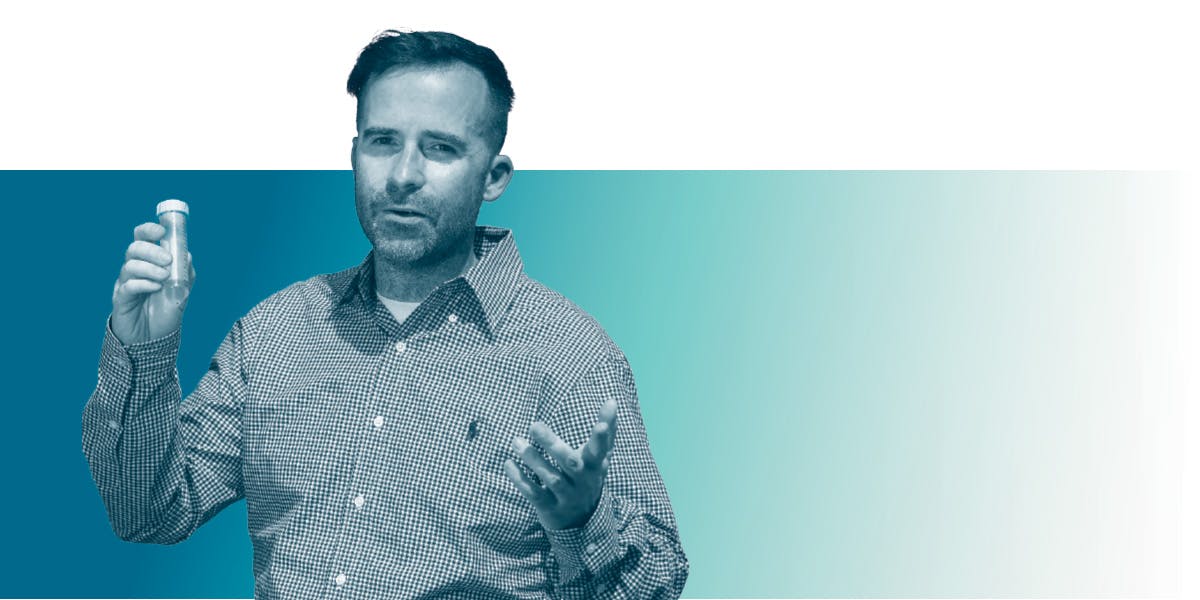Kepley Biosystems, led by Dr. Anthony Dellinger ’15 PhD and co-founded by UNCG nanoscience professor Dr. Christopher Kepley, is a North Carolina life sciences startup that looks for sustainable solutions to environmental problems through invention.
Their projects run the gamut – from a synthetic and sustainable fishing bait, to odor technology to help train newly adopted dogs, to microbial-resistant technology initially created for the management of horseshoe crab blood.
When the COVID-19 pandemic began, the bioscientist team realized they had an impetus to develop something to help the medical community, as well as patients and potentially others. Their thoughts turned towards masks – the crucial piece in American public health, and even more crucial for medical professionals in a crisis situation.
As Dellinger and others at Kepley know from working in a hospital, N95 masks are very, but not completely, effective, need to be replaced frequently, and can spread virus if they are not disposed of properly, plus they can limit oxygen intake.
What if they could create a mask that could efficiently eliminate pathogens – bacterial, viral, and fungal – and provide breathable, sterile air for the wearer? And what if, through a secondary mechanism, the mask could expel sterile air into the environment? Fully bioactive masks.
“We wanted to introduce something that would comprehensively solve all of the problems associated with masks – if it was just purely filtration, or if it was because of a lack of comfort related to oxygen exchange capabilities. But most importantly, we wanted to make something that we could confidently say is killing the microbes that come in,” says Dellinger.
“In any realm, we’re looking to make lives easier and environmentally better.
— Anthony Dellinger ’15 PhD
In July, Kepley Biosystems filed an accelerated patent for a personal protection air sterilization technology. The proposed mask’s rate of efficacy against COVID-19 or other pathogens has of course not been tested. There is no prototype yet. But the plan is exciting.
They envision a mask that could be used to slow the spread of COVID-19 and also to protect patients and others from secondary infections within medical facilities. The technology could also be adapted for use in manufacturing, shipping, and food preparation and packaging facilities, as well as in shared, enclosed spaces such as aircraft, operating rooms, auditoriums, and cars.
Dellinger says that resources to create the antimicrobial mask are available. Now, it’s a matter of the right partnerships.
“We were inspired to get this patent and get the word out there, to stimulate communication in the community, and to share that we have a fundamental proof of concept for an actual device,” says Dellinger.
“We thought that obviously had advantages for the medical world but also for a lot of other industries. In any realm, we’re looking to make lives easier and environmentally better.”
By Susan Kirby-Smith
Photography by Martin W. Kane; graphics courtesy of Kepley Biosystems
